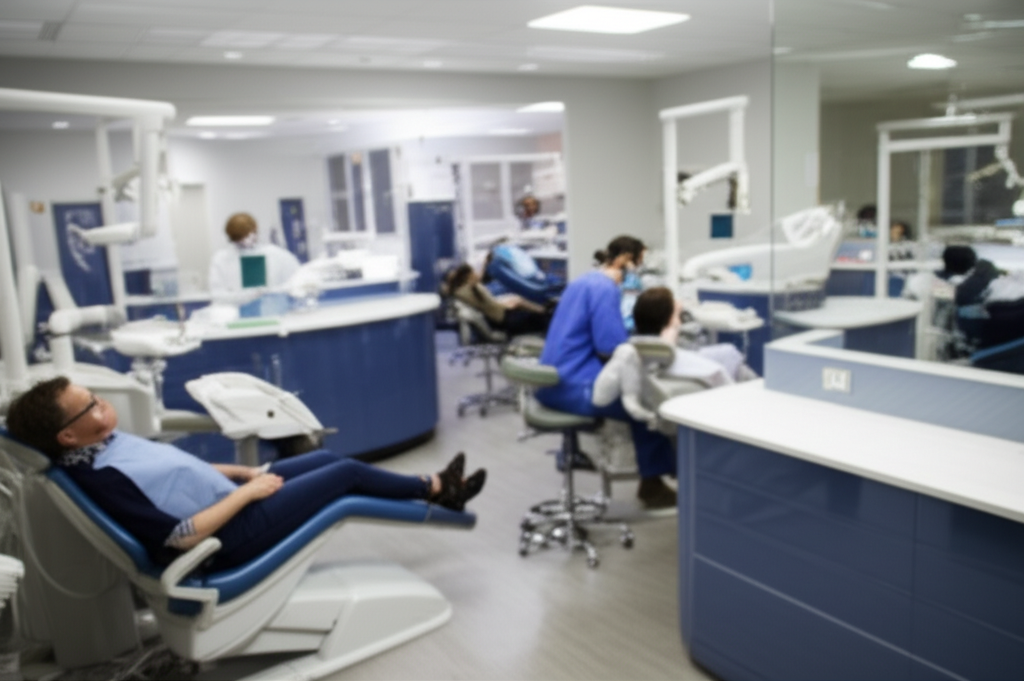
Is There High Demand for Dentists in Canada? Your Friendly Guide to a Growing Profession
Have you ever wondered if becoming a dentist in Canada is still a good idea? Maybe you’re a student thinking about careers, a parent helping your child, or someone thinking about retraining or moving to Canada. You’re not alone. A common question about dentistry is simple, but so important: Are dentists really needed in Canada?
Let’s clear up the confusion together. In this guide, we’ll explain everything you need to know—from job prospects and regional differences to why northern communities can’t find enough dentists and how new government plans might change things. By the end, you’ll know what the facts say, and you’ll feel ready to make smart choices for your future or your family’s health.
In This Article
- Understanding the Current Landscape of Dental Demand in Canada
- Regional Variations in Dentist Demand Across Canada
- Key Statistics and Data on the Canadian Dental Workforce
- Challenges and Opportunities for Dentists in Canada
- Is Dentistry a Good Career Choice in Canada for the Future?
- Frequently Asked Questions (FAQs) About Dentist Demand in Canada
- Your Healthy Takeaway
Understanding the Current Landscape of Dental Demand in Canada
People keep asking: “Is there really a need for more dentists in Canada, or are the cities already full?” The good news—based on what government and dental groups say—is clear: the demand for dentists in Canada is strong and should keep rising for years.
Overall Job Outlook for Dentists (2023–2033)
The numbers tell a clear story. The Government of Canada’s Job Bank says the job outlook for dentists is “good” to “very good” in most areas, with jobs expected to grow by about 20% over the next ten years. That’s quicker than most other jobs in Canada. But what’s driving this?
Supply vs. Demand in Dentistry
- Lots of dentists will retire over the next ten years. Each one leaves a spot open.
- Canadian dental schools only graduate about 500–600 new dentists each year, but we’ll need at least 10,600 new dentists between 2022 and 2031. That gap means there are lots of chances for new dentists.
Key Job Market Facts
- Job openings stay high, especially in rural, faraway, and underserved places.
- Dental specialists (like orthodontists and oral surgeons) are wanted in most provinces.
Why More Dental Services Are Needed
Canada’s need for dental care is going up—and not just in big cities.
The Aging Population
By 2068, Statistics Canada says almost one in four Canadians will be over 65. Older people usually need more dental work—like crowns, dentures, and implants. That puts a lot of pressure on dentists, especially specialists.
More Focus on Oral Health
Canadians care more about dental health now. Regular checkups, early care, and even cosmetic dentistry are normal for many people.
The New Federal Dental Care Plan (CDCP)
You may have heard about the new dental care plan—the Canadian Dental Care Plan (CDCP). It will help pay for dental care for about nine million people who don’t have dental insurance. More people will go to the dentist, especially in places where it’s been hard to find care.
More People and New Immigrants
Canada keeps bringing in new people every year. Many stay in cities where dental offices are busy, but some go to smaller towns that need more dentists.
Technology Is Changing Dentistry
Digital X-rays, 3D printing, and remote checkups (tele-dentistry) are changing the job. New tools mean better care—and new jobs, too.
Regional Variations in Dentist Demand Across Canada
Here’s where things get interesting. Dentist need isn’t the same everywhere—it’s different in big cities like Vancouver compared to small towns in Nunavut.
Provinces With Big Need and Shortages
Big cities like Toronto, Vancouver, and Montreal have lots of dentists, but shortages stay in rural, faraway, and northern areas. Some regions have way fewer dentists per person than the Canadian average. For example:
- British Columbia: In Vancouver, there’s about one dentist for every 1,550 people, but up north there might be only one or two dentists, or none.
- Atlantic Canada (PEI, Nova Scotia, New Brunswick, Newfoundland and Labrador): Some areas can’t attract new dentists, with only 1 dentist for 2,400 people.
- The Territories: Yukon, Northwest Territories, and Nunavut have even fewer dentists. In Nunavut, it might be just one dentist for 15,000 or more people!
So if you want to make a real difference and have a secure job, think about moving to Atlantic or northern communities.
“Case Study”: Indigenous and Remote Communities
Indigenous and northern communities often rely on dentists flying in, mobile clinics, or only getting care now and then. This means people may wait a long time between visits and sometimes get sicker. If you want to help, these areas have jobs—but also real ways to support community health.
City vs. Small Town Opportunities
Some people think Canadian cities are already “full” of dentists. While a few neighborhoods have many dentists, there are still chances in growing parts of the city and suburbs, especially with more people moving in.
- New graduates can do well by working in suburbs, fast-growing parts of cities, or opening offices that serve diverse communities with different languages.
- Rural practices often let you move up faster and earn more money, especially if you want to own a clinic or take over from a dentist who’s retiring.
Need for Dental Specialists
General dentists are wanted everywhere, but there’s special need for:
- Orthodontists
- Oral and maxillofacial surgeons
- Periodontists
- Pediatric dentists
- Endodontists
Specialists find jobs quickly and can get great chances in places with not many dentists, especially outside the big cities.
Key Statistics and Data on the Canadian Dental Workforce
So, what do the numbers look like? Here’s a simple breakdown:
Dentist-to-Population Ratios by Province
- BC: 1 dentist for every 1,550 people
- Ontario: 1 dentist for every 1,700 people
- Quebec: about 1 dentist for every 1,800 people
- PEI & Atlantic provinces: 1 dentist for 2,400–3,000 people
- Nunavut: 1 dentist for 15,000+ people
The average across Canada is about 1 dentist for every 1,500–2,000 people. Need gets bigger away from big cities.
Predicted Job Openings and Labor Needs
Between 2022 and 2031, about 10,600 new dental jobs will open up in Canada—mostly as older dentists retire and as the population grows. With only 500–600 new grads each year, many places and specialties already don’t have enough dentists.
Average Income and Earnings Potential
In Canada, general dentists usually make between $120,000 and $250,000+ a year. Specialists, clinic owners, and dentists in high-need places usually earn more. How much you make depends on where you work, how long you’ve been working, and what type of office you’re in.
Real-Life Snapshots
- A new dentist in rural Alberta might start at $180,000 or more, since there aren’t many dentists, while a new dentist in downtown Toronto may make less at first.
- Specialists like those who do orthodontics or implants earn more, especially if they use new technology with a top digital dental lab.
Challenges and Opportunities for Dentists in Canada
No job is perfect. Here’s what’s hard—and what’s exciting—about being a dentist in Canada today.
Challenges in the Profession
High Cost of Education
Becoming a dentist in Canada usually means 8 or more years of school, and it’s expensive. Tuition can be over $20,000–$30,000 a year, plus living costs. Many students end up with large loans.
Competition in Big Cities
Downtown areas can have a lot of dentists. New grads often start as associates, sharing income with clinic owners or working part-time to build up a patient list.
Extra Steps for Internationally Trained Dentists
If you studied dentistry in another country, you’ll need your schooling checked and, usually, new exams like those from the National Dental Examining Board of Canada (NDEB). This is to keep patients safe, but it takes time and effort.
Regional Differences
Some places in Canada really need dentists, while others only have space for a few. That’s why some regions have too many dentists and others too few.
Growing Opportunities and Trends
More Specialized Services
More people want orthodontics, implants, cosmetic dental work, and full-mouth care. If you work with top labs like a zirconia lab or a crown and bridge lab, you can help offer even better treatments.
Technology and Digital Dentistry
Digital impressions, 3D printers, and AI for diagnosing are starting to be common. Not only does this lead to better patient care, but it also creates new job types, like working at a 3d dental lab or helping with online dental care.
More Focus on Prevention and Public Health
With the Canadian Dental Care Plan coming in, there will be jobs for public health dentists and those who want to work with big groups, like schools or senior homes, where care can be offered early on.
Clinic Ownership or Locum Work
Whether you want to run your own clinic, work with a dental chain, or travel to fill in for others, dentistry in Canada has options for every goal.
Is Dentistry a Good Career Choice in Canada for the Future?
So, is it worth it? Here’s how it all adds up.
Long-Term Security and Room to Grow
As we’ve shown, Canada needs—and will keep needing—good dentists and specialists. This isn’t just a short-term trend. Retirements, an older population, new dental plans, and more health awareness mean steady demand, especially in places that don’t have enough dentists.
Is Dental School Worth the Cost?
Dental school isn’t cheap, but most dentists earn enough to pay off loans. Starting salaries are high compared to many jobs. If you own your clinic, specialize, or work with top labs like an implant dental laboratory, you can earn even more.
Tips for Future Dentists
- Think about location: Not a fan of big cities? Northern and rural Canada really need you.
- Consider specializing: Learning more gives you more options and job safety.
- Stay curious and flexible: New technology and ways of working are coming fast.
- Find mentors: Talk to working dentists and get their advice, no matter your background.
- Remember why you started: This job is about helping people, not just doing checkups and fillings.
Frequently Asked Questions (FAQs) About Dentist Demand in Canada
Q: Which Canadian provinces need dentists the most?
A: The biggest need is in Atlantic Canada (like PEI and Newfoundland & Labrador), Northern Ontario, northern BC, and the three territories (Yukon, NWT, Nunavut). If you work outside the biggest cities, you’ll find lots of jobs and ways to help people.
Q: What do dentists make in Canada?
A: General dentists earn $120,000–$250,000+ per year. Specialists make more in most cases. What you earn depends on your location, experience, and clinic setup.
Q: Do dental schools graduate enough dentists for Canada?
A: Not everywhere. Canadian schools graduate about 500–600 dentists a year, but there are over 1,000 new jobs every year because of retirements and growth. The gap is wider in rural places and for some types of dental care.
Q: How will the new dental plan change dentist need?
A: The CDCP will pay for dental care for about nine million Canadians who didn’t have coverage before. This will mean more people need dentists, especially in low-income and rural or urban neighborhoods with few clinics.
Q: Is it hard to get a dentist job in Canada?
A: In most places—especially outside big cities—qualified dentists get jobs quickly. There is more competition in large cities, but more people moving in means new jobs keep opening up. If you’re a specialist or have digital dentistry skills, you’re even more in demand.
Your Healthy Takeaway
Here’s the short version:
- Dentists are definitely needed in Canada, especially outside the biggest cities and in remote, northern, and underserved places.
- Getting older, more people moving in, new dental care plans, and new technology are all making the demand even higher.
- Pay is good—with earnings based on where you work, your specialty, and your experience.
- Biggest challenges? Dental school is long and costly. If you trained overseas, getting licensed is harder. Best opportunities? Go where you’re needed most—like small towns, public health, special types of dentistry, or new tech.
- What’s next: Think about where you can help the most, find good mentors, and keep learning.
And remember—no matter if you’re just starting out, thinking of specializing, or moving to Canada as an experienced dentist—you’re looking at a job that’s all about helping people. If you care about others’ health and want a steady career, you’ll find plenty of ways to make a difference in Canada.
Still have questions? Talk to a dentist near you, or contact your province’s dental group. If you want a future in dentistry, Canada is waiting for you.
References
- Job Bank, Government of Canada. Dentists: Occupational Outlook
- Canadian Dental Association (CDA): Statistical Reports on the Canadian Dental Workforce
- Health Canada: Canadian Dental Care Plan (CDCP) Overview
- Canadian Institute for Health Information (CIHI): Health Workforce Database
- Association of Canadian Faculties of Dentistry (ACFD): Graduate Data & Admissions
Medically reviewed by Dr. Alexandra Miles, DDS.
Want to learn more about new dental treatments, the rise of digital dentistry, or how modern labs like a china dental lab are changing the job? Check out our featured insights page and get ahead in your career!








